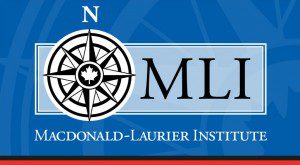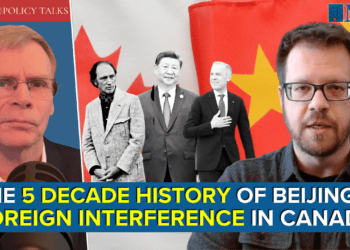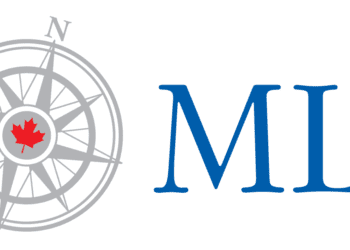 Review of contentious IP and electronic commerce chapters finds the trade agreement is likely to benefit, not harm, innovation in Canada
Review of contentious IP and electronic commerce chapters finds the trade agreement is likely to benefit, not harm, innovation in Canada
OTTAWA, Dec. 17, 2015 – Jim Balsillie claims fame as the former co-CEO of the world-famous BlackBerry, and as a thought leader on innovation. But his leadership veered off course with his well-publicized attacks on the Trans-Pacific Partnership’s intellectual property and electronic commerce provisions.
A new report from the Macdonald-Laurier Institute finds that many concerns about the intellectual property provisions of the Trans-Pacific Partnership – both from Balsillie and other critics – are unfounded.
For the most part, the TPP won’t do what these critics say it will, says University of Toronto adjunct professor of law Richard C. Owens. And even if it did, it would be to Canada’s benefit, as strong intellectual property protections are innovation encouraging.
“For the IP provisions to attract such opposition is frustrating and unfair from the perspectives of those who take a knowledgeable and balanced view”, he says.
“Unfortunately IP is very complex and widely the subject of far more vehement opinion than close study, which makes misstatements by opinion leaders especially dangerous”.
To read the full paper, click here.
An important trade deal
The Trans-Pacific Partnership agreement reached this fall is an important next step in throwing open Canada’s borders to the world, linking us to 11 other economies that combined represent nearly 40 percent of global GDP.
But these benefits haven’t stalled criticism of the deal – particularly when it comes to intellectual property.
Balsillie and other influential Canadians, such as University of Ottawa law professor Michael Geist, have drawn a substantial amount of newspaper ink over the last few months.
Balsillie says Canadians will soon see the TPP as the “worst thing in policy that Canada’s ever done”. Geist says that, on copyright and privacy, “the agreement appears to be a major failure”.
This couldn’t be further from the truth. In fact, for Canada, the TPP mostly reinforces the status quo, aside from a few provisions such as the extension of copyright protection to the life of the author plus 70 years, which are likely beneficial to Canada.
It has also been claimed that Canada’s “notice and notice” regime for online copyright infringements will be replaced with the more rigid “notice and takedown” regime adopted by the US.
“Frankly,” writes Owens, “a notice-and-takedown regime would be a good outcome for Canada”, but he finds that this is not required by provisions of the TPP.
Also, Balsillie has voiced concern that the TPP broadens the range of things that are patentable, of which Owens writes: “if it were so, that would be good thing for Canada”, but the TPP does not do that.
Patent terms will be extended, Balsillie has warned, which Owens finds is true but the provisions are not so broad as Balsillie fears, and the result will again be beneficial to Canada as Canadian patent holders reap a greater benefit from their patents.
Overstepping the bounds
Many criticisms of the TPP stem from complaints about what the agreement does not do, rather than what it does. Balsillie’s complaint that the agreement “strips out” provisions against the abuses of copyright trolls, for example?
“To have expected such a novel policy initiative in the context of a trade agreement negotiation is just odd”, writes Owens. He points out that such inclusions would make the TPP far too complex, but if they are right for this country, nothing in the TPP stops the Canadian government from acting.
“TPP negotiations were the wrong forum to proselytize detailed policy initiatives, but the conclusion of those negotiations hasn’t closed the door on future efforts at all”, writes Owens.
A boon for Canadian innovators
In other cases, what critics claim is a negative on IP protection will in fact benefit Canadian innovators. On a range of intellectual property issues – pharmaceuticals, Internet domain name regulation and trade secrets – the deal is either neutral or positive.
Some may decry a perceived loss of sovereignty but that, says Owens, is part of the plan.
“The whole point of a trade treaty is to sacrifice discriminatory policies – which usually only hurt those enacting them anyway – for gains in trade”, he writes.
“Canadian innovators will be better off with predictable, universal rules”.
***
Richard Owens is a lawyer who has specialized in business and commercial law, regulation of financial institutions, intellectual property and technology. He is an adjunct professor with the University of Toronto Faculty of Law and has served as the Executive Director of the Centre for Innovation Law and Policy at the University of Toronto. Richard has written and published widely on intellectual property law, the law of information technology, privacy, and the regulation of financial institutions.
The Macdonald-Laurier Institute is the only non-partisan, independent national public policy think tank in Ottawa focusing on the full range of issues that fall under the jurisdiction of the federal government. Join us in 2015 as we celebrate our 5th anniversary.
For more information, please contact Mark Brownlee, communications manager, at 613-482-8327 x105 or email at mark.brownlee@macdonaldlaurier.ca.




